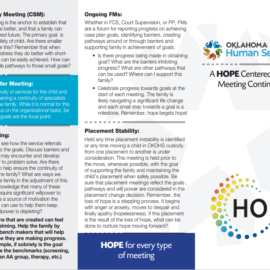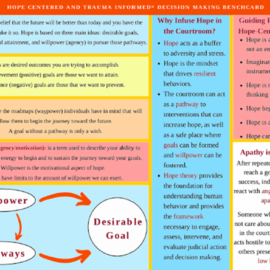
Trauma & Resilience
Adverse Childhood Experiences (ACEs) on CDC website – Adverse childhood experiences, or ACEs, are potentially traumatic events that occur in childhood (0-17 years). ACEs and associated conditions, such as living in under-resourced or racially segregated neighborhoods, frequently moving, and experiencing food insecurity, can cause toxic stress (extended or prolonged stress). The impact of toxic stress from ACEs can change children’s brain development and negatively affect such things as attention, decision-making, learning, and response to stress. ACEs are linked to chronic health problems, mental illness, and substance misuse in adulthood. However, creating and sustaining safe, stable, nurturing relationships and environments for all children and families can prevent ACEs and help all children reach their full potential.
- Original ACE study and related resources
- Preventing Adverse Childhood Experiences (ACEs): Leveraging the Best Available Evidence
Harvard Center on the Developing Child – The mission of Harvard’s Center on the Developing Child is to drive science-based innovation that achieves breakthrough outcomes for children facing adversity. The Center’s website contains a wealth of information about the NEAR sciences and applications for policy and practice. Here are some of the great resources available:
- Adverse Childhood Experiences (ACEs) and Toxic Stress
- In Brief: The Science of Neglect
- Resilience
- In Brief: Early Childhood Mental Health
- Building Adult Capabilities
- Three Principles to Improve Outcomes for Children and Families
Leveraging Advances in Science to Achieve Breakthrough Impacts at Scale for Young Children Facing Adversity – Jack Shonkoff, Harvard Center for the Developing Child – recorded webinar from the National Child Abuse and Neglect Technical Assistance and Strategic Dissemination Center.
Teaching the Hulk Tetris: Understanding Trauma and the Importance of Self-Regulation in Child Dependency Courts – recorded FYJP training
TED Talk – How Childhood Trauma Affects Health Across a Lifetime – Pediatrician Nadine Burke Harris explains that the repeated stress of abuse, neglect and parents struggling with mental health or substance abuse issues has real, tangible effects on the development of the brain. This unfolds across a lifetime, to the point where those who’ve experienced high levels of trauma are at triple the risk for heart disease and lung cancer.
The Neglected Transition: Building a Relational Home for Children Entering Foster Care – In The Neglected Transition, child welfare researcher Monique B. Mitchell explores children’s experiences of loss and ambiguity as they transition into foster care, as well as the questions children ask during this critical life transition. Specifically, the author uses child-centered research, practical examples, and healing suggestions to create a foundation from which a relational home can be built.
What Every Judge and Attorney Should Know About the Trauma of Removal – In this recorded talk for the American Bar Association, Monique Mitchell, PhD, explains the importance of being grief and trauma informed when working with children and youth in the child welfare system.

Hope Science
Hope Rising: How the Science of HOPE Can Change Your Life, by Casey Gwinn and Chan Hellman – Based on nearly 2,000 published studies about hope, including their own research, the authors call for rising hope to be the focus not only in personal lives, but in public policy in child welfare, education, business, and every other part of society.
Hope Score website – Hope Scale tool for adults and children.
Hope Research Center – University of Oklahoma – Tulsa
Kitsap Strong is a community initiative to improve the health and well-being of all children, families and adults in Kitsap County.







